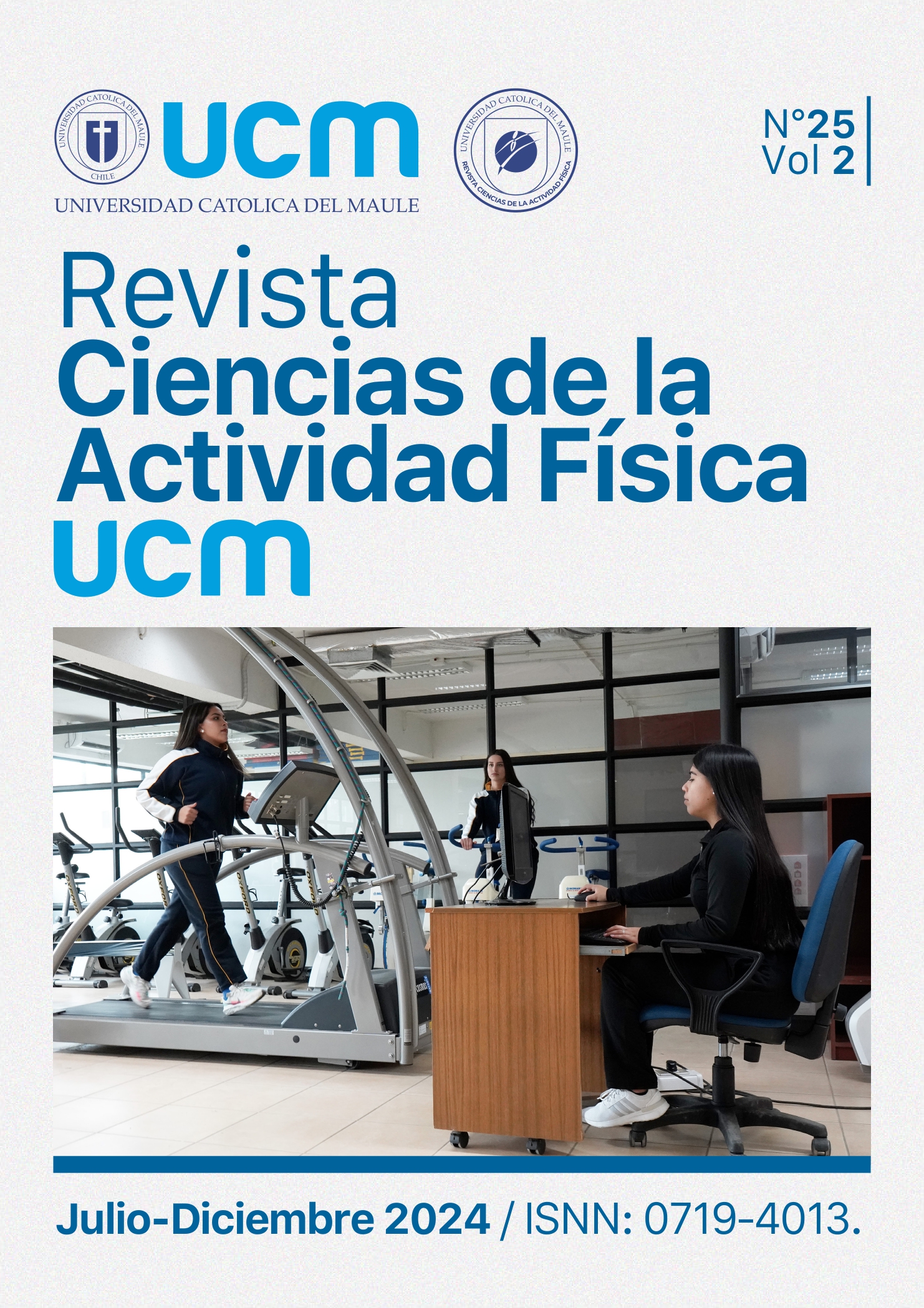Bennett, E. V., Trainor, L. R., Bundon, A. M., Tremblay, M. Mannella, S., & Crocker, P. R.E. (2022). From “blessing in disguise” to “what do I do now?”: How Canadian Olympic and Paralympic hopefuls perceived, experienced, and coped with the postponement of the Tokyo 2020 Games. Psychology of Sport and Excercise, 62, https://doi.org/10.1016/j.psychsport.2022.102246
Cañizares, M., & Huie, M. (2022). Injuries and psychological resilience in elite cuban athletes. En A. M. Columbus (Ed), Advances in Psychology Research. (Vol. 149), Capítulo 8. Nova Science publishers.
Fernández-Arguelles, D., Sánchez-Oliva, D., Cecchini-Estrada, J. A., & Fernández-Rio, J. (2023). Longitudinal associations between physical activity and mental health in adolescents. RICYDE. Revista Internacional de Ciencias del Deporte, 71(19), 16-28. https://doi.org/10.5232/ricyde2023.07102
García, O., Cancela, J. M., Oliveira, E., & Mariño, R. (2009). ¿Es compatible el máximo rendimiento deportivo con la consecución y mantenimiento de un estado saludable del deportista? Revista Internacional de Ciencias del Deporte, 14(5), 19-31. https://doi.org/10.5232/ricyde2009.014.03
González Echeverry, J., Posada López, Z., Valencia Barco, L., Valencia Caicedo, M.C., & Vásquez López, C. (2022) Procesos de transición hacia el retiro deportivo: una revisión sistemática usando la herramienta Prisma. Revista Iberoamericana de Ciencias de la Actividad Física y el Deporte. 11(3), 189-211. https://doi.org/10.24310/riccafd.2022.v11i3.15708
González Hernández, J. (2011). Percepción de bienestar psicológico y competencia emocional en niveles intermedios de la formación deportiva en deportes de combate. e-balonmano.com: Revista de Ciencias del Deporte, 7(Suppl.), 75-80. http://ojs.e-balonmano.com/index.php/revista/article/view/77/70
Jordana, A., Torregrossa, M., Ramis Laloux, Y., & Latinjak, A. T. (2017). Retirada del deporte de élite: Una revisión sistemática de estudios cualitativos. Revista de Psicología del Deporte, 26(4), 68-74. https://doi.org/journalofsportpsychology
Lima, A. C. (2021). Respuestas a la sesión de relajación: investigaciones en el deporte. Revista Ciencias de la Actividad Física UCM, 22(2), julio-diciembre, 1-14. http://doi.org/10.29035/rcaf.22.2
Ortega, P. (2006, Abril 16). Reportaje:DEPORTISTAS ¿Qué hay el día después de la medalla? Vértigo. El País. https://elpais.com/diario/2006/04/16/domingo/1145159556_850215.html
Piñeiro-Cossio, J., Pérez-Ordaz, R., Bermejo-Martínez, G., Alcaraz-Iborra, M., & Nuviala, A. (2023). Development and validation of a scale to assess Psychological Well-being in physical activity and sports: The PWBPA scale. Retos, 49, 401-407. https://doi.org/10.47197/retos.v49.97623
Ryff, C. D. (1989). Happiness is everything, or is it? Explorations on the meaning of psychological well-being. Journal of Personality and Social Psychology, 57(6), 1069–1081. https://doi.org/10.1037/0022-3514.57.6.1069
Ryff, C. D. (2014). Psychological Well-Being Revisited: Advances in the Science and Practice of Eudaimonia. Psychotherapy and Psychosomatics, 83(1), 10-28. https://doi.org/10.1159/000353263
Torregrossa, M., Ramis, Y., Pallarés, S., Azócar, F., & Selva, C. (2015). Olympic athletes back to retirement: A qualitative longitudinal study. Psychology of Sport and Exercise, 21, 50-56. https://doi.org/10.1016/j.psychsport.2015.03.003
Vidaurreta Lima, L., & Rojas Vidaurreta, L. (2015). Desentrenamiento deportivo en Cuba: en busca de un retiro psicológicamente saludable. Revista Cubana de Medicina Deportiva y Cultura Física, 10(1), 1-9. https://revistas.udg.co.cu/index.php/olimpia/article/view/4410
wadkar, S. K., Singh, K., Shakravarty, R., & Argrade, S. D. (2016). Assessing the reliability of attitude scale by Cronbach’s Alpha. Journal of Global Communication, 9(2), 113-117. https://doi.org/10.5958/0976-2442.2016.00019.7
Willard, V. C., & Lavallee, D. (2016). Retirement experiences of elite ballet dancers: Impact of self-identity and social support. Sport, Exercise, and Performance Psychology, 5(3), 266-279. https://doi.org/10.1037/spy0000057
Yoshida, A., Saeki, T., Kuomo, I., Tashima, K., Kiku, K., & Ohashi, M. (2006). A study of second career establishment for top athletes. Bulletin of institute of health and sport sciences, university of Tsukuba, 29(1), 87-95.
Zamora-Solé, R., Alcaraz, S., Regüela, S., & Torregrossa, M. (2022). Vivencias de aspirantes olímpicas en la disrupción del ciclo Olímpico Tokio 2020. Apunts Educación Física y Deportes, 148, 1-9. https://doi.org/10.5672/apunts.2014-0983.es.(2022/2).148.01


 https://orcid.org/0000-0001-5661-6996
https://orcid.org/0000-0001-5661-6996
